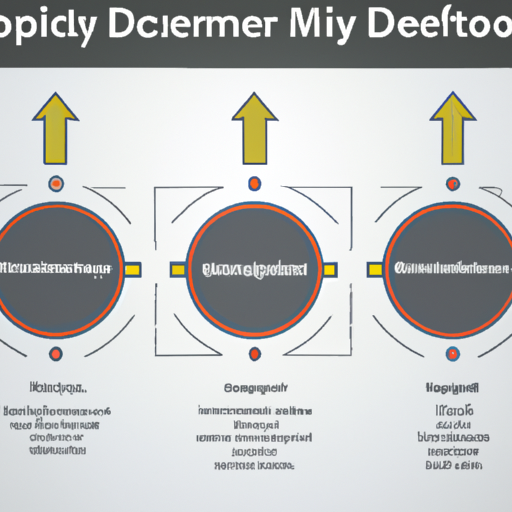Disciplining Teens Essential Strategies
Welcome to the World of Discipline
Well, hello there! I’m excited to embark on this journey with you as we explore the world of discipline. Now, before we dive in, let’s define what discipline really means. Discipline is not about punishing your child; it’s about teaching them life skills, values, and boundaries that will help shape them into responsible adults.
The purpose of discipline is to help your teen understand that their actions, words, and decisions have consequences. It’s about guiding them towards making good choices and taking responsibility for their actions. Discipline also helps to create a safe and supportive environment for your child, where they can learn, grow, and thrive.
Respectful Communication: Talking and Listening to Your Teen
Hey there! This part is all about communication, which is a super important aspect of discipline. As a teenager, I sometimes feel like my parents don’t listen to me or understand what I’m going through. That’s why it’s crucial to establish respectful communication between parents and their teens.First and foremost, setting rules and expectations for how we communicate helps create a respectful and comfortable environment. For example, my parents and I agreed that we won’t shout at each other or use hurtful language when we’re upset. It may seem like a small thing, but it goes a long way in building trust and respect.Another key part of communication is listening. When I feel like my parents are really listening to me, I’m more likely to be open and honest with them about my thoughts and feelings. Sometimes it’s hard for parents to listen without jumping in to offer advice or a solution, but simply hearing what their teen has to say can make a big difference.Overall, respectful communication involves not only speaking in a kind and considerate manner but also listening actively and without judgment. It takes time and effort to develop this approach, but it’s one of the most important tools parents can use to promote positive behavior and strong relationships with their teens.
Get Involved!
As a parent, it is crucial to establish clear expectations for your child, especially during their teenage years. You want to encourage responsibility and independence in your child, while also setting healthy boundaries. One of the best ways to do this is by being involved in their life and interactions.
First and foremost, establish communication with your teen through dialogue. Remember to listen and engage in respectful conversation. Together, set clear boundaries and rules. Communicating with your teen can help them understand your expectations and time to give their ideas. When you have rules, you give yourself something to enforce and provide your teen with a clear understanding of what can and cannot) be tolerated. Explain the natural consequences of their behavior and help them avoid negative outcomes before they have them.
This is where you can utilize your involvement in their life to reinforce positive behaviors. Praise their effort and progress, such as studying or participating in sports, and create rewards for good behavior. You want to create an environment where your child feels supported and motivated to act positively. So if they have a goal of success, you can offer simple rewards or incentives to motivate them. After all, a little positive reinforcement can go a long way!

However, sometimes corrective action needs to be taken. This can include taking away privileges or using natural consequences. Such as, if your teen misses a curfew, you might have to take away their car keys or not let them go to social events. It also means allowing your child to feel the consequences of their actions and take responsibility for their decisions. It’s a great lesson that teens can learn with the right guidance and instruction.
Remember, it is important to keep your teen involved and give them opportunities to make good choices. Keep the communication lines open and always set reasonable and achievable expectations. With these strategies in mind, you can establish a healthy and positive relationship with your teenager.
Heading 4: Reinforce Positive Behaviors
Hey guys! Now that we’ve talked about the importance of respectful communication and setting expectations, let’s dive into the fun stuff – reinforcing positive behaviors! One way to do this is by rewarding good behavior. This doesn’t always have to be a big or expensive prize, it can be something as simple as extra screen time or a favorite snack. It’s important to remember to be consistent and not over-reward, otherwise, the rewards will lose their meaning. Another way to reinforce positive behaviors is by praising effort and progress. This lets your teen know that even if they haven’t quite achieved the desired behavior yet, their effort is still appreciated and noticed. This helps to boost their self-esteem and motivation to continue to work towards the desired behavior. Remember, it’s important to reinforce positive behaviors consistently in order to make them a habit. This helps to create a positive and supportive environment where your teen feels appreciated and respected for their efforts. Keep up the good work!
5. Corrective Action: Oops! Time to Take Action
Uh-oh, things aren’t going as planned. You’ve set expectations, but your teen is still misbehaving. It’s time for some corrective action to ensure that your teen understands the consequences of their actions. As I read on lovelaughterhappilyeverafter.com, there are a few strategies to consider.
If your teen fails to meet expectations, taking away privileges can be an effective solution. Perhaps they can’t use their phone for a day or two, or they can’t go out with their friends this weekend. Whatever it is, make sure the punishment fits the crime.
Another approach is to let natural consequences occur. If your teen fails to study for an exam and gets a bad grade, don’t bail them out. Let them take ownership of their mistake and face the consequences. This approach can be tough, but it can help your teen learn valuable life skills.
Remember, corrective action should be used sparingly and thoughtfully. The goal is to emphasize the importance of meeting expectations, not to punish your teen. By following these steps, you can help your teen learn from their mistakes and grow into a responsible adult.
Wrapping it Up: My Final Take on Parenting with Discipline
Well folks, that’s a wrap! Discipline is definitely not an easy task, but it’s something that we as parents need to be dedicated to in order to help our teens learn and grow into responsible adults. We’ve covered a lot of ground in this blog, so I’ll leave you with a final summary of our strategies and some personal thoughts.
Summary of Strategies:
- Respectful Communication
- Interaction and Involvement
- Reinforcing Positive Behaviors
- Corrective Action
Remember to establish rules and boundaries for respectful communication. Listen to your teen and set clear expectations while encouraging responsibility and independence. Reinforce positive behaviors by rewarding good behavior and praising effort and progress. If necessary, corrective action can be taken through taking away privileges or utilizing natural consequences.
Final Thoughts:
While discipline can be challenging, I believe that with consistency and love, you can help your teen to mature and succeed. It’s important to remember that discipline doesn’t mean punishment – it’s about teaching your teenager to make good decisions and be accountable for their actions. So, keep up the good work and don’t forget to take a deep breath (or two) when things get tough. Happy parenting!






